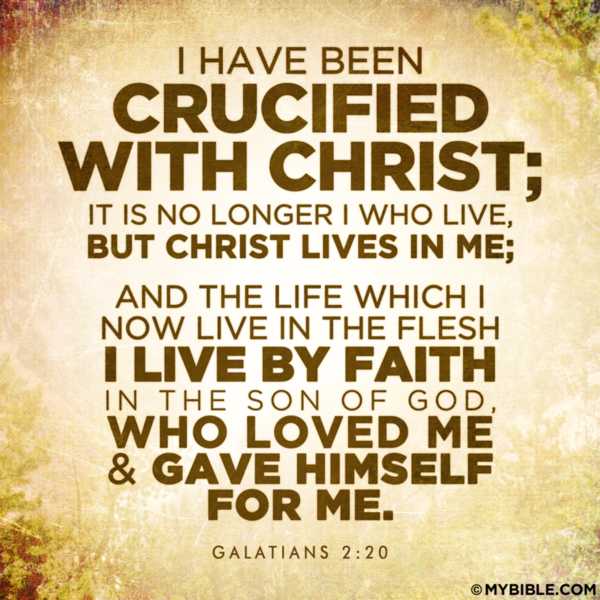THE CROSS
THE CROSS
From: Christian Friend, Volume 2
"God forbid that I should glory, save in THE CROSS of our Lord Jesus Christ, by whom the world is crucified unto me, and I unto the world."—Gal. vi. 14.
I would say a few words on the entire end of self in THE CROSS—the nothingness to which it reduces us. How little do we know practically of this. Let us look at Jesus, and then learn how very little our souls have realized its power in thus setting ourselves aside.
We see in Him one who had all human righteousness, and one too in whom "dwelt all the fullness of the Godhead bodily;" yet what path did He take? What was THE CROSS to Him? To what did it reduce Him? The entire setting aside of all this human righteousness, of all this divine power. The perfect strength of His love was proved, not only in that He "did not please Himself "—though "in the form of God," and thinking it "not robbery to be equal with God," that He emptied Himself, and "being found in fashion as a man," humbled Himself to take the place of our disobedience—but that in this place of love He was content to be utterly rejected! to be reduced to nothing, that love might shine out!
The flesh in us is subtle, very subtle: if we show love, we expect that it will be felt; but if otherwise—if, when we have rendered a kindness, we get no return, not even a kind word—our hearts grow faint and cold in the exercise of love. Do we know what it is when our hearts have gone forth in love to meet with that which we read of in Corinthians, "Though the more I love you, the less I be loved" to find that the only consequence of humiliation is to become thereby less respected, more humbled still. Thus it was with Jesus; full of patience and tenderness, He exposed Himself to the power and malice of Satan. But what did He find in us when doing this work of love? Man took occasion, by His very lowliness, to treat Him with the utmost scorn. He was "the reproach of men, the despised of the people." They kept Him in on every side:
"Dogs have compassed me about: the assembly of the wicked have enclosed me: they pierced my hands and my feet."
"Many bulls have compassed me about: strong bulls of Bashan have beset me round: They gaped upon me with their mouths, as a ravening and a roaring lion."
He looked for comforters, but found none. One of those with whom He had "taken sweet counsel" lifted up his heel against Him; and even that disciple who had been most forward to declare his adhesion, "Though all men should forsake thee, yet will not I," denied Him with oaths and curses.
There was no outlet to His grief, no comfort from man; and here we see the meaning of that,
"Be not thou far from me, O my God!"
Cast out by the scorn of those whom He came to in love, pressed upon, closed in by those whom He came to save, His soul turned to God: "My God, be thou not far from me!" But God had hid His face from Him;
"My God, my God, why hast thou forsaken me?"
He now found the darkness and wrath that came upon Him to the uttermost; there was no response on any side: the deep hatred of man around, and from above darkness also; everything was set aside but the power of love.
"I sink in deep mire, where there is no standing: I come into deep waters, where the floods overflow me."
The waves and the billows went over Him; all was lost in the waves but love: it was that which sustained Him; love was greater than all; and it was set on us.
When we see what He, as emptied, was, we come to the depth of love. If He emptied Himself of everything else, there was still the fullness of love, for He is God, and
"God is love."
We, dear brethren, have found the fullness of love in Jesus, and that shall be our everlasting portion—we shall know, shall taste this love forever.
When Jesus was "going about" here, it was as "doing good;" He could not restrain His power, though ever so lowly and humbled, when good was to be done; He was obliged to show it. Thus in the life of Jesus, in His actings here, there was something which the natural heart must own, must approve: we like to have our diseases cured; and when they saw the dead raised, they could rejoice in having their deceased friends brought to life again: but in THE CROSS there was no putting forth of this power, there was no miracle—nothing but weakness and degradation—He was "crucified through weakness." Trial from man, temptation from Satan, desertion from God—there was nothing to be seen but love—the depth, the fullness, the riches of that love which will be our happy, blessed portion forever.
The natural heart in every one of us hates the power of THE CROSS. We want something for the eye to rest upon, we seek a little honor here; THE CROSS stains all the pride of human glory, and therefore we like it not. Let us test ourselves, beloved. Are we really content to take THE CROSS in this its power, and to say, "I want nothing else"?
"God forbid that I should glory, save in THE CROSS of our Lord Jesus Christ, by whom the world is crucified unto me, and I unto the world!"
May our souls rest in this blessed confidence—Jesus is our everlasting portion; to dwell in Him is to dwell in God, and
"God is love."
Many Christians are cherishing those things which keep them from knowing the full power of this love in their hearts. We cannot enjoy love and pride together. Whatever nourishes self, no matter what—honor, talents, learning, wealth, friends, respectability—anything, everything which the natural man delights in, nourishes pride in us, renders Christ less precious, and the enjoyment of His love less full.
The Lord give us to know what it is to be "crucified to the world." Let us, beloved brethren, bless God for everything that puts down self.
Photo of Cross Painting by AngelaL_17 on Pixabay (altered in Lunapic)











